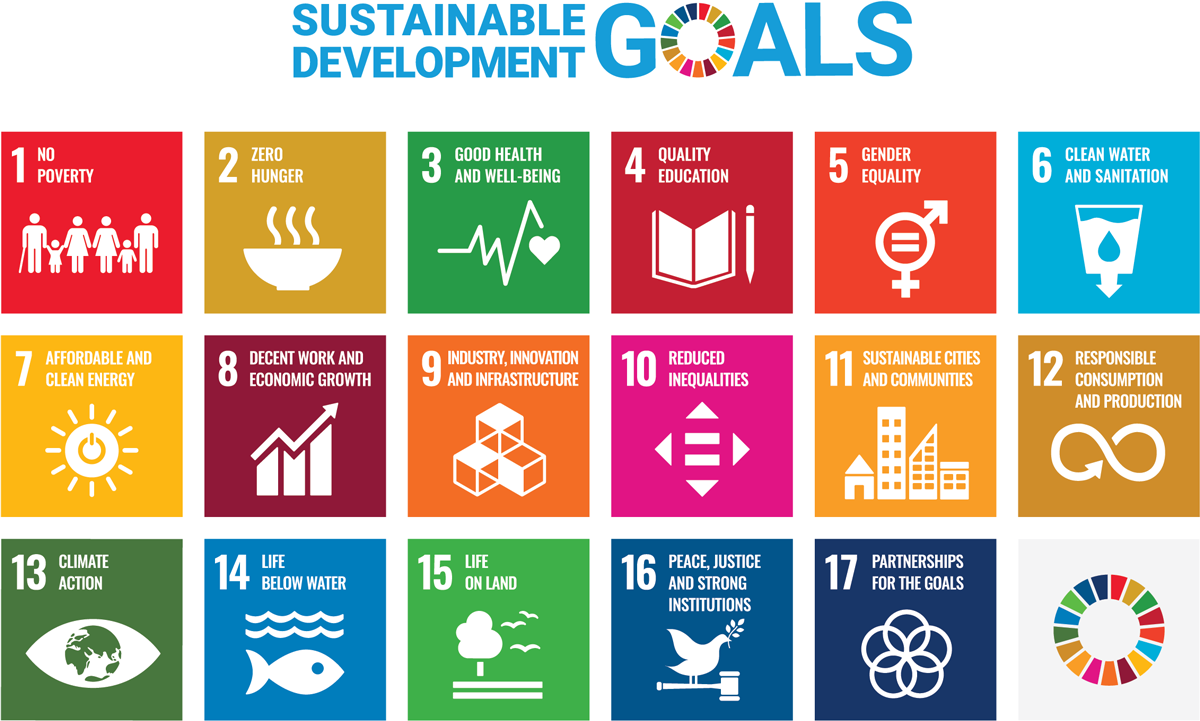HORIBA and the SDGs
Basic Approach
We contribute to realizing the sustainable society advocated by SDGs by offering analyze and measurement technologies which lead technology innovation that supports security, safety, and health for people while contributing to global environmental conservation. Under the corporate motto "Joy and Fun," all employees understand the nature of SDGs and realize growth of each business. We believe that this leads to solutions which would achieve the SDGs.
The SDGs formulated by the United Nations in 2015 highlight various social issues, and we believe that finding solutions of such issues begins with “measurement.” By utilizing analytical and measurement technologies, HORIBA provides products that support all sorts of social issues, such as solutions and improvements of global environmental issues as well as energy efficiency, to be solved. We believe that business growth of HORIBA brought by delivering our analytical and measurement solutions can create a sustainable society and fulfill our social responsibilities.
What are the SDGs?
In September 2015, all 193 Member States of the United Nations adopted a plan for achieving a better future for all — laying out a path over the next 15 years to end extreme poverty, fight inequality and injustice, and protect our planet. At the heart of “Agenda 2030” are the 17 Sustainable Development Goals (SDGs) which clearly define the world we want — applying to all nations and leaving no one behind.
*Quoted from the Global Compact Network website
HORIBA’s actions for the achievement of the SDGs
Introducing the HORIBA Group’s initiatives
Supporting the establishment of a new institute at University of California, Irvine

Signing ceremony for the support agreement


In August 2018, we concluded an agreement with the University of California, Irvine (UCI) in the United States to support the establishment of the HORIBA Institute for Mobility and Connectivity in connection with the University’s Advanced Power and Energy Program. With this agreement, we will strengthen the collaborative academic and industrial relationship we have with UCI, which is viewed as a highly trustworthy organization by U.S. regulatory agencies, including the Environmental Protection Agency (EPA). Through this institute, we will integrate the fields of energy and mobility, which have previously been treated as separate domains, promote research aimed at resolving a variety of environmental issues and work to create businesses that will contribute to the entire energy industry.
Three research subjects investigated by the HORIBA Institute for Mobility and Connectivity
- To develop vehicles, fuel supply chains, and mobility systems that emit no pollutants
- System construction to connect zero-emission vehicles with a next-generation electric grid that incorporates renewable energies at a much higher level than exists today
- To invent the next-generation of conveyances that can sense their surroundings and communicate with the traffic and energy infrastructure
Expansion in environmental regulations and the monitoring business in Southeast and Southern Asian regions

Tap water quality monitoring device supplied to Kuala Lumpur, Malaysia




Each emerging countries has environmental regulations that are adjusted to its own unique factors, including its regional characteristics and industrial foundations, and these environmental regulations are being strengthened in accordance with rapid economic development. By locally enhancing its engineering strength, HORIBA is working to meet the individual needs of each country in which it operates and propose products and solutions that comply with the unique regulations adopted in each of these countries. Furthermore, we provide technical guidance for environmental researchers and experts in emerging countries. Therefore, we offer support in terms of software, in addition to assistance with measurement instruments. Moving forward, HORIBA will pursue business expansion with a high level of relevance to local customers while contributing to environmental conservation.
HORIBA’s products contributing to the eradication of malaria, as outlined in the SDGs

SDGs call for the eradication of malaria

HORIBA analyzed a large volume of test data accumulated over the years and added a decision algorithm for detecting malaria infection to its hematology analyzers. This addition made screenings for infection possible during the usual hematology analysis process, enabling the reduction of working hours spent testing. According to the 2016 statistics from the World Health Organization (WHO), more than 200 million people in 91 countries have been infected with malaria. Early diagnosis of malaria leads to early treatment, preventing further transmission through infection and warding off increases in severity. HORIBA will pursue business growth while contributing to the early detection of infectious diseases.
Strengthening of global R&D and establishment of a base for development in the United States
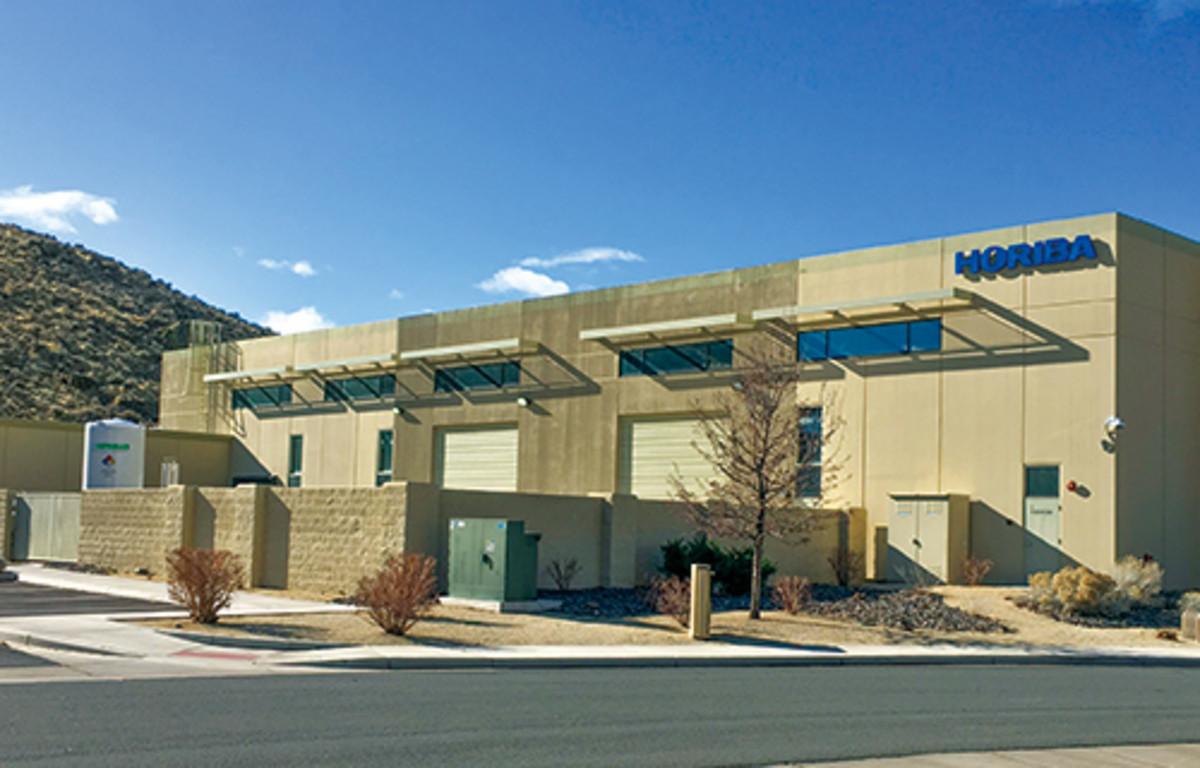


We established the HORIBA Reno Technology Center, a base for development, in Reno, Nevada, which is easily accessible from the western coast of the United States, an area that is dotted with the bases of many semiconductor and semiconductor production equipment manufacturers. Ever since establishing a sales base concentrating on mass flow controllers in Silicon Valley in 1989, we have continued to conduct activities that are highly relevant to the local customers in the area. In the future, we will strengthen our development capabilities by quickly incorporating the needs of the market and contribute to further growth in the semiconductor industry.
HORIBA France SAS’s grating displayed in the Nobel Prize Museum
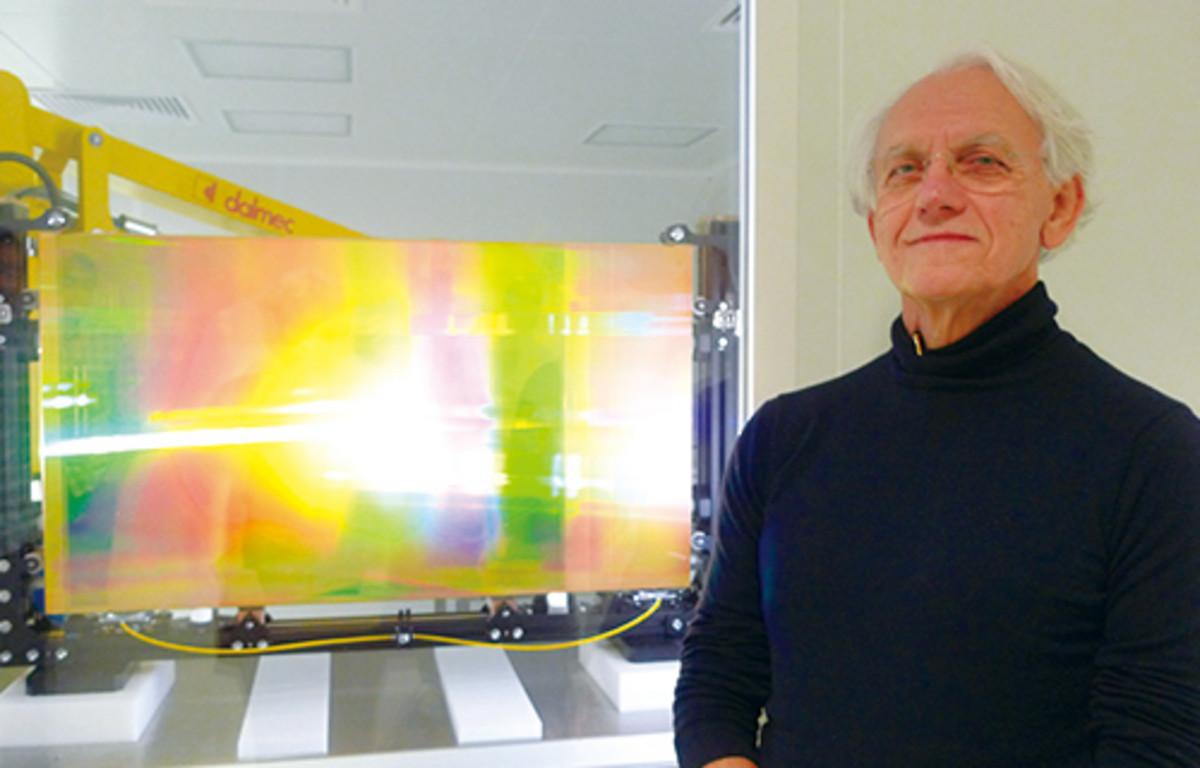
Professor Mourou and his Grating from HORIBA France


Professor Gérard Mourou, the 2018 recipient of the Nobel Prize in Physics, has used HORIBA France’s Gratings in his research concerning the improvement of laser performance for many years, producing considerable achievements. In commemoration of his award, Professor Mourou selected grating from HORIBA France that he actually used in his research for display in the Nobel Prize Museum. Moving forward, HORIBA will support researchers across the globe in order to contribute to the future development and advancement of science.
Project for JICA's SDGs Business Supporting Surveys Has Been Selected
Strengthen Air Quality Monitoring System in Morocco
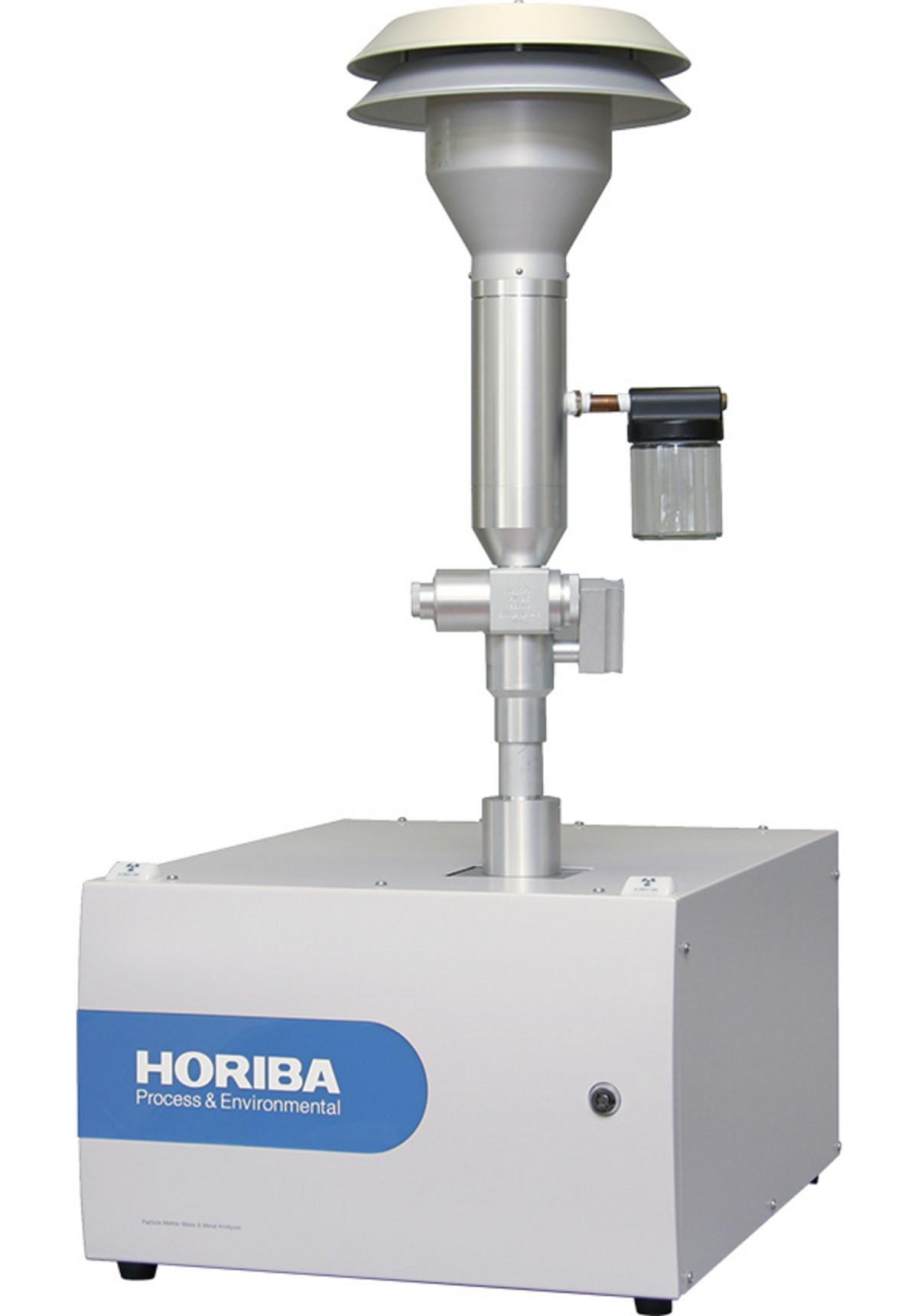
Continuous Particulate Monitor with X-ray Fluorescence PX-375 (Online automatic analysis of mass and elemental concentration)



As one of its SDGs Business Supporting Surveys, Japan International Cooperation Agency (JICA) has selected HORIBA’s business project which will introduce Air Quality Monitoring Systems in Morocco. Due to air pollution caused by the increase of industrial activities, a national air quality plan has been launched by the Moroccan government.
Therefore, in this project we aim to strengthen monitoring systems by providing products and knowledge for establishing regulations/standards throughout Morocco.
By using our experience that has contributed to strengthening environmental regulations in Japan, Europe, United States, Southeast Asia etc., we will contribute to improving aerial environment in Morocco with our technology.
- JICA (Japan International Cooperation Agency)
- For more details, visit PX-375
HORIBA's Infrared Thermometer IT Series Registered on the UNIDO ITPO Tokyo's Sustainable Technology Promotion Platform
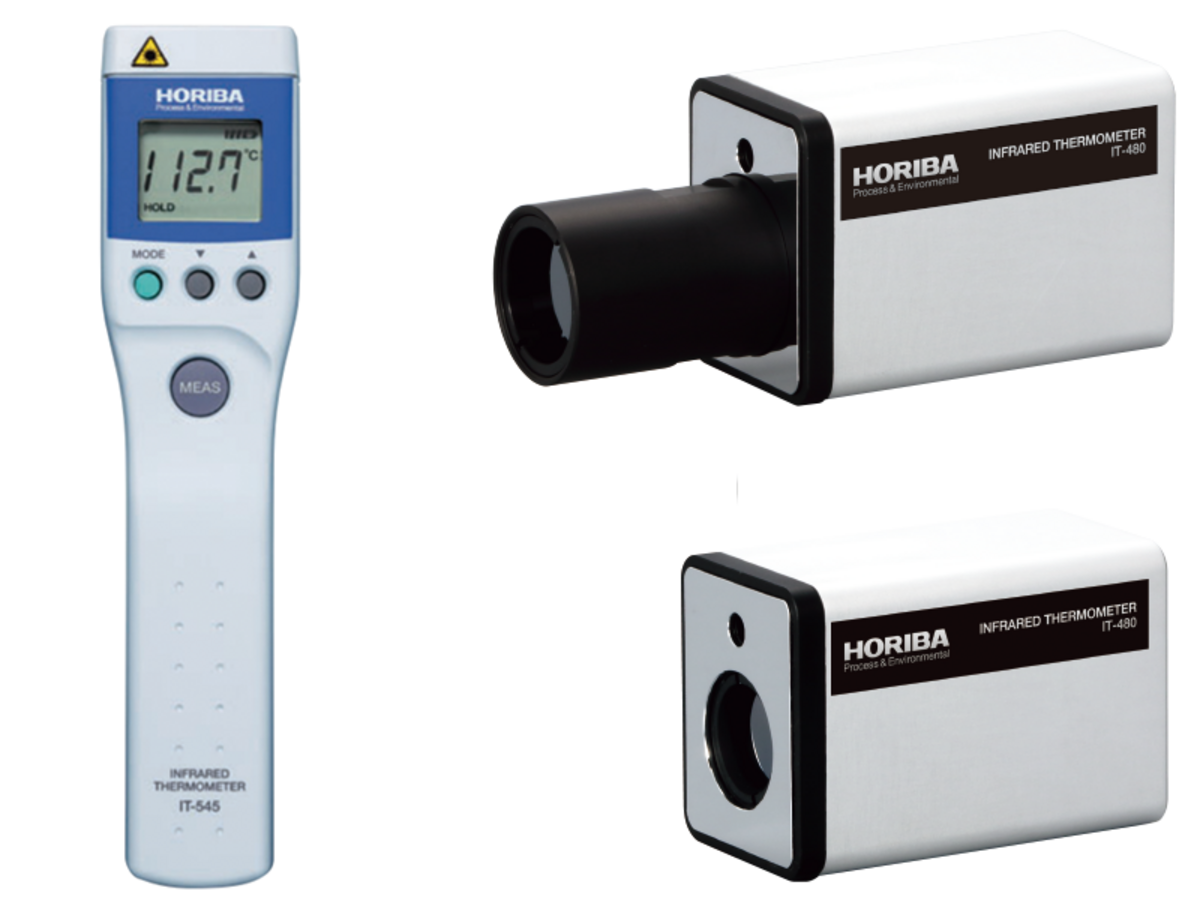
Non-contact infrared thermometer (left) IT-545, (right) IT-480


HORIBA's non-contact infrared thermometer has been registered on the Sustainable Technology Promotion Platform (STePP*1) of the United Nations Industrial Development Organization (UNIDO) Investment and Technology Promotion Office (ITPO) Tokyo, which is designed to share information on prominent Japanese technologies that contribute to sustainable industrialization in developing and emerging countries.
Incorporating HORIBA's in-house sensor technology, the IT series measure temperature with industry-leading accuracy*2, and are available in portable handheld types and built-in types. In developing countries, they may be used for quality control in food processing, abnormal temperature check of electrical equipment, etc. As they can measure objects from a distant place accurately and efficiently, the IT series will contribute to achieving SDGs and industrial development.
- Link of the webpage
- For more details, visit Thermometer
*1:STePP
*2:As of 2019
Contributes to the reduction of environmental impact by Optical Smart Sensing

HORIBA offers a lineup of various monitoring systems that are incorporated into the wafer manufacturing process, which is essential for semiconductors.
The wafer manufacturing process uses a of gases, which are detoxified and released into the atmosphere at the end of the process.
In this process, there is a risk that the vacuum pumps and valves that draw the gases from the chamber may become blocked by by-products and become inoperable, and there is no established method to confirm that the gases have been rendered harmless.
In recent years, the global movement toward carbon neutrality has been accelerating, and the semiconductor industry has been changing its environmental awareness as well as improving device performance.
HORIBA's infrared absorption type concentration monitors (IR-400 series) monitor gas concentrations from chambers and vacuum pumps.
By constantly monitoring the cleaning state of the chamber and the concentration of by-products in the vacuum pump, it is possible to know the optimal timing for chamber maintenance and to prevent blockages of precision parts and sudden pump stoppages, thereby improving the efficiency and safety of the wafer fabrication process and It contributes to the reduction of environmental impact.
- For more details, visit Gas Monitor IR-400

